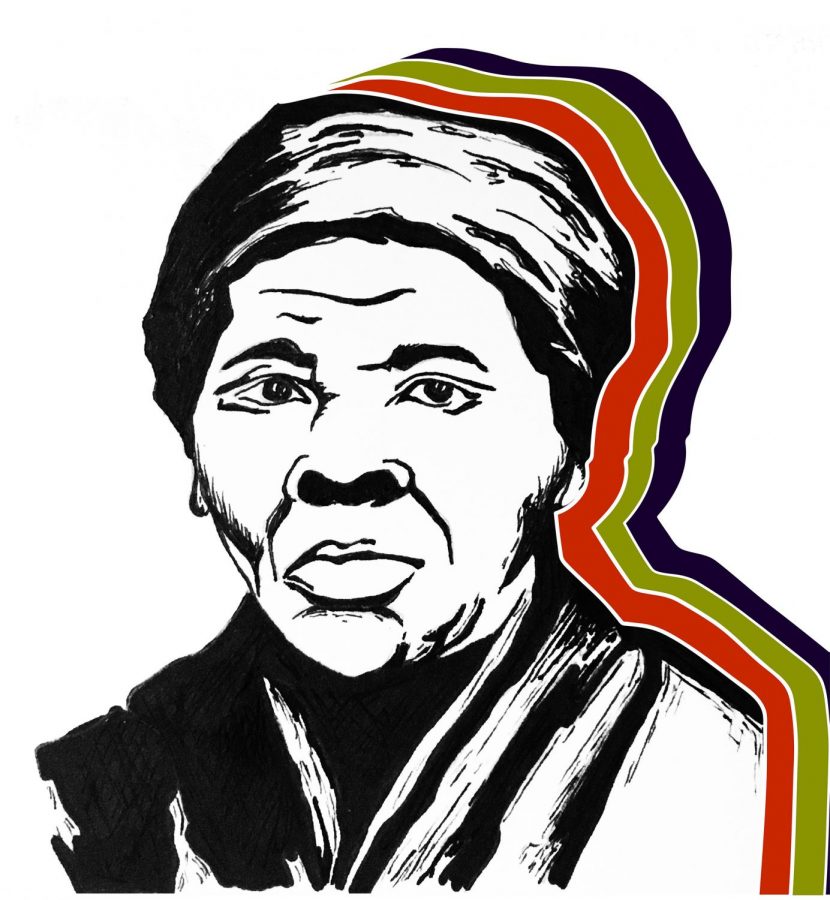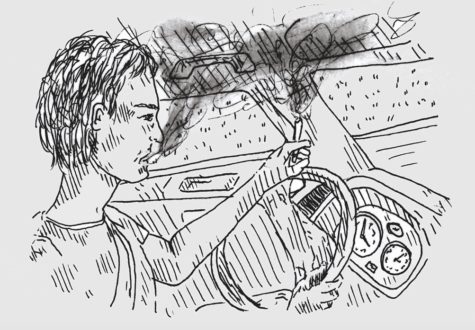Putting Harriet Tubman on American currency is an insult to her legacy
An illustration of Harriet Tubman, a fierce abolitionist and one of history’s most powerful figures.
American money is adorned with the smiling faces of the white men who came before us, proud of the land they stole and the atrocities they committed. Our twenty-dollar bill, in particular, boasts the bust of Andrew Jackson, a controversial character who committed egregious acts in his time as president. Jackson climbed the socioeconomic ladder exponentially through his exploitation of his 161 slaves. Infamous for his temper and tendency to inflict harsh physical punishments, Jackson was the pinnacle of a Southern Plantation Owner. He ardently opposed passing laws to make slavery illegal in the newly settled West and put up fights over any sort of slavery reformation.
This supreme lack of reverence for Black lives was not where his faults ended. When he was pioneering Western Expansion, Jackson placed great importance on what he called “Indian Removal” – which was exactly as immoral as it sounds. Jackson was part of the great majority of our country who believed the Native tribes to be “savages,” and felt it necessary to remove them by any means. By his hand, thousands were slaughtered. His Indian Removal Act incited the Trail of Tears, displacing over 50,000 Natives from their homes so colonizers could take their land. Jackson is the father of an organized genocide, responsible for wiping out nearly 30 percent of the Native population. To honor him, we placed his face on our money.
Clearly, we shouldn’t idolize this man. Democrats in our country have debated replacing Jackson with, really, anyone else, for a while now. Obama’s administration suggested Harriet Tubman: abolitionist, conductor of the Underground Railroad, and a woman who risked her life time and time again to free enslaved African-Americans. President Joe Biden reignited this call this January, immediately scoring praise from white liberals who viewed this as some sort of anti-racist agenda.
In a society where capitalist values are held with the utmost respect, perhaps the idea of placing Tubman on our bill feels like the greatest acknowledgment to honor her. Realistically, though, putting Harriet Tubman’s face on our 20 dollar bill is simply an appeasement of white guilt, a performative, band aid solution on a deep issue that does little lasting good. Sure, we’d see less of the racist man who sat before her, but that’s where the story would end. Placing Tubman’s face on our currency would simply be relegating her back to a commodity, sending us back to the time where Black existence was worth less to society than the money they could bring in.
The founding belief in America that Black bodies are only important so long as they turn a profit still lives. It propelled our building of the country in the 1700s and it’s perpetuated today in our sports, music, and entertainment media. Harriet Tubman’s life was spent fighting this exact idea, working to emancipate slaves for a life where they existed beyond a price. The only way Tubman’s legacy should become intertwined with our system of capital is in conversations of immense structural change, reparations, solid plans to fix wealth disparities, wage disparities, the inequity of our education system, and an end to the continued commodification of the Black body.
Your donation will support the student journalists of Archie Williams High School. Your contribution will allow us to purchase equipment and cover our annual website hosting costs. Each donation will receive a magazine subscription for a year (6 copies a year), and become a part of the important work our publication is doing.
$35 -- Subscription to the magazine
$50 -- Silver Sponsorship
$75 -- Gold Sponsorship
$100 -- Platinum Sponsorship

Katie Hausammann joined journalism this year, as a senior. Katie loves hiking, reading, writing, art, politics, arguing, and her family. She spends her...














Jason Smith • Mar 1, 2021 at 8:22 PM
Pretty pessimistic narrative on the early US history and founding fathers. Did some of them have flaws, no doubt. But they also laid the foundation of enlightenment ideals into government – the value of the individual, all men created equal. Now it took another 100 or so years from US creation to legally make citizens legal, but we did it. Slavery was NOT only confined to US, it happened (and continues) to happen worldwide – however no other country has done more to elevate a segment of society that was enslaved. Furthermore, the richest people of African descent are African Americans. I do think we should celebrate Harriet Tubman on our currency.